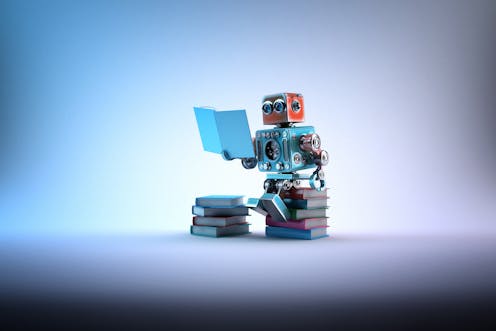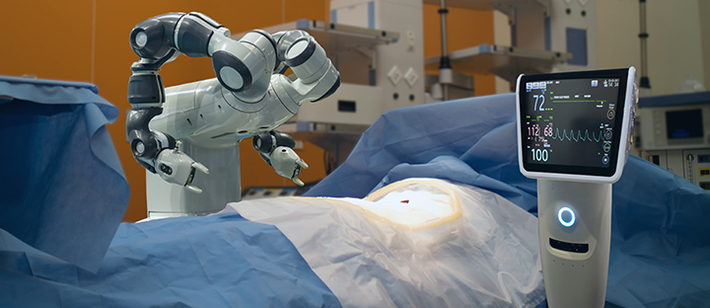
It's difficult to have a conversation about 21st century technology and not talk about Artificial Intelligence (AI). This tells you a lot about the future of tech. What this conversation will also reveal are the deep-seated fears that this revolution brings along with it, nightmares that will keep policy makers and you & me, the average human being up at night as the reality of the threat to our employment grows even more real.
But if there is one thing history agrees with is that you cannot stop an idea whose time has come. AI is here and is here to stay!
Let's get one thing out of the way: AI is not a novel phenomenon, it has been around for a while; in the predictive power of weather apps, the spot-on suggestive potential of social media platforms and Netflix, and the skeptically shrewd (and sometimes annoying) digital ads. However, what AI had not quite achieved is going full-on mainstream for me and you to be able to interact with AI programs with the awareness that we are interacting with AI programs. This is what "chatGPT", a new program by Open AI has managed to pull off.
Hitting the 1 million subscriber mark in just 5 days, chatGPT is simply a testament of what many already know - that there is nothing going to stop or slow this revolution down. Everyone is talking to it. ChatGPT is a large language model capable of expressing itself clearly and accurately in English with human-level interactiveness and solving low level to expert level tasks.
However, this article is not just about chatGPT. It's about Artificial Intelligence in general. This includes; where we have come from, where we are headed, the impact of AI on our social-economic welfare and its threat to human-performed jobs, limitations and how we can join this revolution and move forward with it.
Also, what are the chances that in time, AIs learn to work autonomously on their own, undermine human commands, take over the world and subjugate the human race? How far-fetched was Avengers: Age of Ultron's plot?
The History of Artificial Intelligence
The field of artificial intelligence (AI) has a long and storied history. It officially began in 1956, when a group of researchers gathered at Dartmouth College to discuss the possibility of building machines that could think and reason like humans. This event marked the start of the field of AI research, which has since grown and evolved significantly.
Over the years, AI has made tremendous strides in areas such as natural language processing, machine learning, and robotics. Early AI systems were based on rule-based systems, which were designed to follow a set of explicit rules in order to perform specific tasks. These systems were limited in their ability to adapt to new situations, and they required a great deal of human input and intervention.
With the advent of machine learning, AI systems became much more flexible and powerful. Machine learning algorithms allow AI systems to learn from data and improve their performance over time, without the need for explicit rules or human intervention. This has led to the development of AI systems that can perform a wide range of tasks, from language translation to image and speech recognition.
More recently, advances in deep learning have enabled AI systems to achieve even greater levels of performance and accuracy. Deep learning algorithms, which are based on artificial neural networks, allow AI systems to process large amounts of data and learn complex patterns and relationships. This has led to the development of AI systems that can perform tasks that were previously thought to be beyond the capabilities of machines, such as playing games, recognizing objects in images, and even driving cars.
Overall, the evolution of AI has been marked by steady progress and increasing capabilities. As AI technology continues to advance, it is likely that it will become an increasingly important part of our lives, transforming many different industries and fields.
Limitations of Artificial Intelligence
There are several limitations of artificial intelligence (AI) that are worth considering. First, AI systems are only as good as the data they are trained on. If the data is biased, incomplete, or inaccurate, the AI system may make mistakes or produce incorrect results. This can be a particular concern when it comes to sensitive applications, such as medical diagnosis or criminal justice.
Another limitation of AI is that it can be difficult to understand and explain how an AI system arrives at its decisions. This is because many AI algorithms, particularly those based on deep learning, are complex and opaque. This lack of transparency can make it difficult to know why an AI system is making certain decisions, which can be problematic in certain situations.
Additionally, AI systems can be expensive to develop and maintain. Building and training an AI system requires a significant investment of time, money, and expertise. Additionally, AI systems often require large amounts of data and computing power, which can also be costly.
Finally, AI systems can be vulnerable to hacking and other forms of misuse. Just like any other computer system, AI systems can be exploited by attackers who want to steal or manipulate data, or disrupt operations. This can have serious consequences, particularly in critical applications such as transportation or healthcare.
In summary, while AI has the potential to revolutionize many different fields and industries, it is important to be aware of its limitations and to address them in order to ensure that it is used responsibly and effectively.
Will Artificial intelligence take away human jobs
It is likely that the development of artificial intelligence (AI) will lead to some displacement of human jobs. As AI systems become more advanced and capable, they may be able to perform many tasks that are currently done by humans. This could result in job losses in some industries, as companies may choose to replace human workers with AI systems in order to reduce costs and increase efficiency.
However, it is also important to note that AI has the potential to create new job opportunities. For example, the development of AI systems may require the creation of new roles for people who design, build, and maintain the systems. Additionally, the use of AI in various industries may lead to the creation of new products and services, which could in turn create new job opportunities.
Ultimately, it is difficult to predict exactly how the development of AI will impact the job market in the long term. Some jobs may be displaced by AI, while others may be created. It is important for individuals and society as a whole to be prepared for these changes and to adapt to them in order to ensure that the benefits of AI are distributed fairly and that everyone has the opportunity to participate in the economy of the future.
Which jobs will be most affected by the evolution of AI
It is difficult to predict exactly which job fields will be most affected by the development of artificial intelligence (AI), as the impact of AI will likely vary depending on a range of factors. However, some jobs that are likely to be affected by AI include those that are routine, repetitive, or easily automated, such as data entry, customer service, and manufacturing. AI systems may be able to perform these tasks more quickly, accurately, and cheaply than humans, which could lead to job losses in these fields.
Other job fields that may be impacted by AI include those that require complex problem-solving or decision-making, such as some forms of financial analysis and medical diagnosis. As AI systems become more advanced, they may be able to perform these tasks as well as or better than humans, which could lead to job losses in these fields.
In the medical field...
Artificial intelligence (AI) has made many advances in the medical field in recent years. Some examples of these advances include the following:
Medical image analysis: AI algorithms can be trained to analyze medical images, such as X-rays and CT scans, in order to identify abnormalities and make diagnoses. This can help doctors to more quickly and accurately diagnose diseases and conditions, and can also enable the early detection of potential problems.
Medical language processing: AI algorithms can be used to process and analyze large amounts of medical text, such as patient records, medical literature, and clinical trial data. This can help doctors to more quickly and easily access relevant information, and can also enable the identification of trends and patterns that may be difficult for humans to detect.
Drug discovery and development: AI algorithms can be used to analyze data from chemical and biological experiments in order to identify potential new drugs and treatments. This can help to speed up the drug discovery and development process, and can also enable the identification of new therapies that may not have been discovered using traditional methods.
In the end, these advances made by AI in the medical field have the potential to greatly improve the quality, speed, and accuracy of medical care. By helping doctors to more quickly and easily access and analyze large amounts of data, AI can enable them to make better decisions and provide more effective treatment for their patients.
How can we take advantage of the rise of the Artificial Intelligence era?
In order to reap the best benefits from the rise of the artificial intelligence (AI) era, it is important for humans to do several things. First, it is important for individuals to educate themselves about AI and its potential impacts, both positive and negative. This will enable them to understand the benefits and challenges of AI, and to make informed decisions about how to incorporate it into their lives and careers.
Second, it is important for individuals to develop the skills and knowledge needed to work with AI and to take advantage of the opportunities it offers. This may include learning how to program, use data analysis tools, or develop AI systems. By developing these skills, individuals will be better positioned to participate in the AI economy and to take advantage of the job opportunities that it creates.
Third, it is important for society as a whole to ensure that the benefits of AI are distributed fairly and that everyone has the opportunity to participate in the AI economy. This may involve investing in education, training, and infrastructure to support the development and deployment of AI, as well as implementing policies to promote fair and inclusive access to AI technologies.
Overall, by educating themselves, developing the right skills, and ensuring that the benefits of AI are distributed fairly, humans can position themselves to reap the best benefits from the rise of the AI era.





